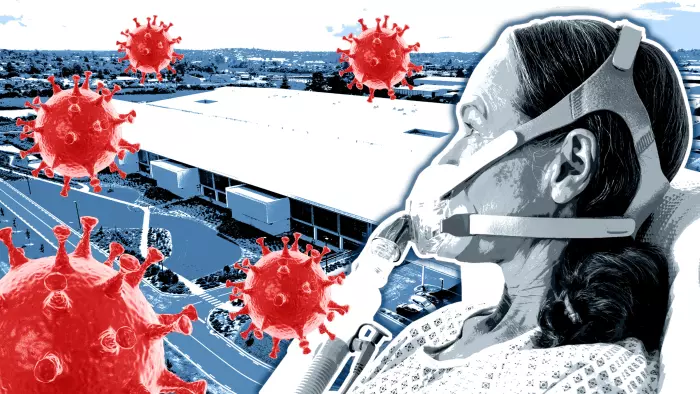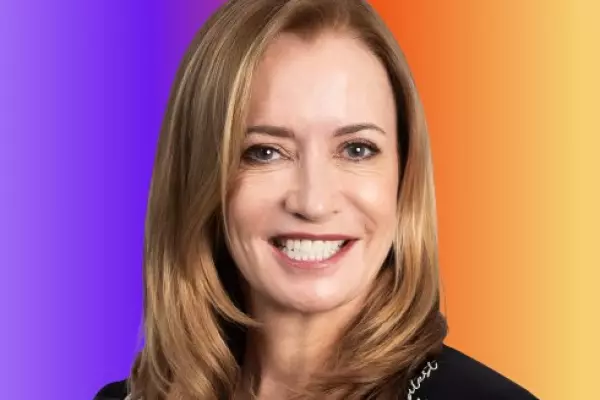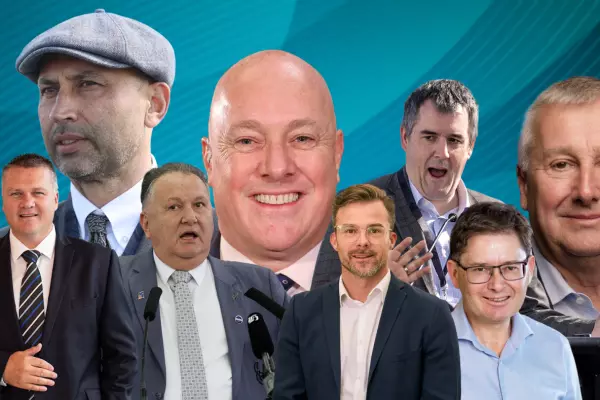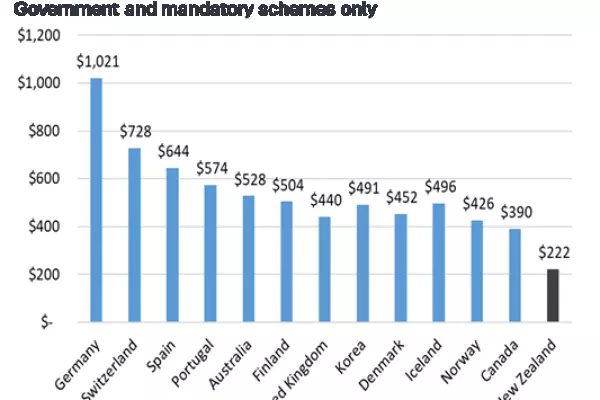On so many metrics, Fisher & Paykel Healthcare is a winner. The Auckland-headquartered global med-tech company was the first New Zealand stock exchange-listed firm to crack a $20 billion market cap; it brings in $1.68b a year and provide thousands of jobs for South Aucklanders from its East Tamaki base.
The company is riding high off a covid boom that saw it sell as much equipment in two years as it would normally sell in 10 years.
But specific cases of bullying suggest not all is well within its ranks and, digging deeper, it becomes apparent the impact of covid-19 – an event so beneficial to the firm’s bottom line – now presents challenges to its “in-person” approach to collaboration.
Is the company at risk of being too old-school? And what does it really contribute to Aotearoa NZ’s wider innovation economy as a so-called frontier firm? Victoria Young investigates in a three-part series.
Fisher & Paykel Healthcare’s Auckland headquarters is no regular workplace.
For starters, it’s described as a campus, a nod to the innovation that comes out of Silicon Valley startups and universities.
Before even arriving, your correspondent gets a sense of the company’s gravitas – the street is named after co-founder Maurice Paykel, located just around the corner from Sir Woolf Fisher Drive.
Signs of development are all around – a multi-level carpark is being assembled along the way and earthworks are going on for a fifth combination manufacturing/office site.
While lush gardens and green spaces surround the building, there’s no fancy office artwork here – the philosophy is that nature provides its own beauty.
Most New Zealanders know about Fisher & Paykel’s washing machines and fridges, but the medical division was created in 1977 in “conditions far from ideal”, according to former executive Dave O’Hare.
By 1990, the division turned over $29 million and by 2001 it was split from its parent.
In his 2004 book, O’Hare wrote about how the medical devices business started on a mezzanine floor of the main whiteware facility, with windows that “leaked dust and cold southerly air”.
It's hard to believe that the division, which began after an engineer decided to use a glass AGEE jam jar as the basis for a humidifier, not only includes the sprawling East Tamaki campus but also has a manufacturing arm in Mexico and distribution centres around the world.
It employs nearly 7,000 people and turned over $1.6b in the 12 months to March 2022.
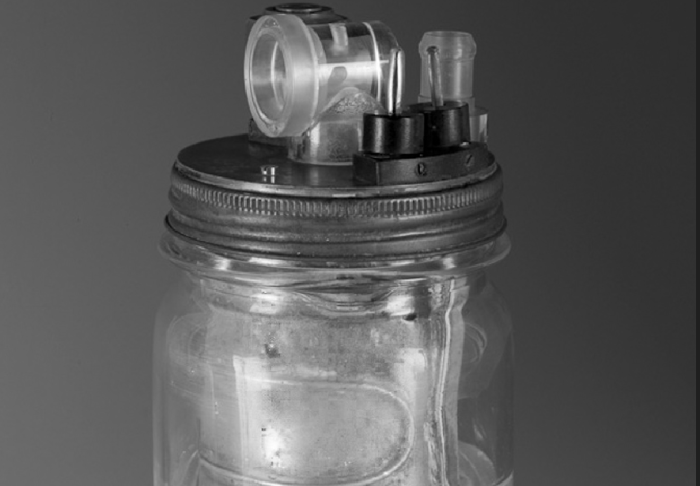
The glass jar which Fisher & Paykel's products evolved from (Image: Supplied).
The way
“The Fisher & Paykel way” is a term you’ll hear a lot around campus, often in reference to its preference for staff to be in person at the East Tamaki headquarters.
A bit of a rarity in the post-covid time of flexible working.
Cafes are subsidised and staff are encouraged to eat together and go for a walk afterwards. There are wide hallways and lots of glass – everyone can see what others are doing.
Each building has production on site so that engineers can jump on to the assembly line. Manufacturing staff are encouraged to speak freely to management as part of its open-door policy.
“I try to look at [chief executive Lewis Gradon] as a friend instead of a boss I suppose,” one worker, who asked not to be named, told BusinessDesk.
“I remember one time he came up to me and said, 'Look, don’t apologise ever for saying something you feel is right.' We try not to put walls up between people, so managers are approachable. Not a lot of waged staff do that in reality, but team leaders have a lot of interaction with managers and production managers."
Like his predecessor Mike Daniell, Gradon himself sits at a desk in a massive open-plan office, with about 40 others around him.
“I do think that we don't mind being different,” said Gradon during a sit-down interview with BusinessDesk. “In fact, we kind of want to be different. We have a strategy, we have a plan, we have a way of working that's been really successful.
“We do what we do. We do it naturally. We’ve always done it, whatever we do, that is the Fisher & Paykel Way. I’m not trying to say it’s the Fisher & Paykel way because I do it, that’s not right.”
Orion Health's chief executive, Brad Porter, who recently moved after more than six years at F&P Healthcare, said his friends used to joke that the firm was a bit cultish, but that “it has a tremendous way of focusing and aligning people”.
“You know, we’re trying to do a bit more of that with Orion – actually having lunchtimes together,” Porter added.
Red flags
Gradon insisted F&P is a good place to work but BusinessDesk’s research raised some red flags.
For example, staff will often refer to an outburst by the company's head of sales, Paul Shearer, as a “Shearerist attack”.
One former staffer said: “He’s very much an athlete. He’s quite talented. I’ve seen him operate, he’s very switched on. But he uses an athlete mindset when it comes to sales.
“He’s very intimidating to a lot of people, like a giant I guess.”
When asked about the phrase “Shearerist attack”, Gradon said wryly, “I think I coined it. It’s intended to be humorous."
Pushed further, Gradon said the phrase was coined to “describe a very intense approach”.
He said he knew about bullying complaints against Shearer but added that “I can’t talk to any particular complaint”.
“When you have 4,000 people on the site, we’re going to have some element of complaints.
“I’m extremely comfortable that it’s a great work environment. Across the 4,000 people, we’ve got a cross-section of personalities."
Bullying complaints
WorkSafe records reveal a bullying complaint from late 2021 containing allegations of one manager “treating staff with an abusive manner that has led to multiple resignations of employees and contractors, and several employees on indefinite stress leave".
“Despite many complaints to the human resources team, none of these concerns are being taken on board by the business, and they seemly are sweeping this issue under the rug.
“Informant states I am scared of [redacted] and would prefer to keep my details anonymous,” a WorkSafe summary of the complaint states.
The form the person filled out states the concern was about “the bullying and intimidating way [redacted] treats her direct report and her own manager".
“This has happened multiple times and was first addressed by HR by putting her on leave and having [redacted] in charge while the problem was investigated.”
WorkSafe files show the regulator contacted the complainant, but the person did not provide information about which manager at the company should be contacted and therefore the regulator could not proceed.
F&P Healthcare said in an email it hadn’t received the WorkSafe complaint but “complaints of a similar nature were made to our human resources team around the same time as the WorkSafe complaint".
“In that situation, the individuals involved made allegations against each other. We acted quickly, and each of these allegations was investigated by an independent barrister. The individuals involved are no longer employed by F&P."
It is difficult to work out how pervasive bullying is at the firm from these examples.
The Auckland headquarters had a turnover rate of 10% in the 12 months to March 31, 2022, up from 4% the year prior.
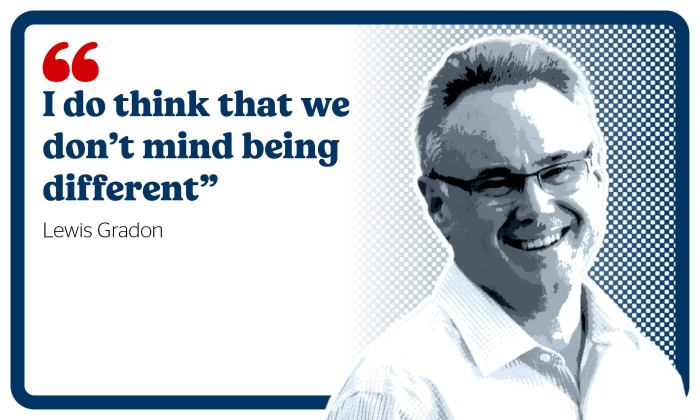 Figures for the whole company broken down by age show turnover is highest in people under 30 – at 25% from 17% the year prior. This is also higher than the firm’s global turnover rate of 17%.
Figures for the whole company broken down by age show turnover is highest in people under 30 – at 25% from 17% the year prior. This is also higher than the firm’s global turnover rate of 17%.
The most recent available data from Stats NZ showed worker turnover for the December 2021 quarter was 13.4%, although the figure was lower for manufacturing, where turnover had been sitting at about 10%.
One former staffer said younger people wanted more flexibility and that F&P Healthcare’s ways of working were not seen as modern.
“This is just my personal point of view, but it’s a big echo chamber … the whole ‘this is the Fisher & Paykel way’ is something you hear quite a lot, which is a good thing and a bad thing.
“The methodology they use in manufacturing and engineering is the Kanban Method of incremental changes to make the whole thing more efficient. But that’s a good analogy of the whole company … there’s no radical change or shift in mindset that they need to get to the 21st century.
“But the share price is good, and the analysts aren’t really complaining. It’s safe."
This article is part of a series.
Read part two: The Fisher & Paykel way: The forecasts and the future.
Read part three: The Fisher & Paykel way: At the frontier.


